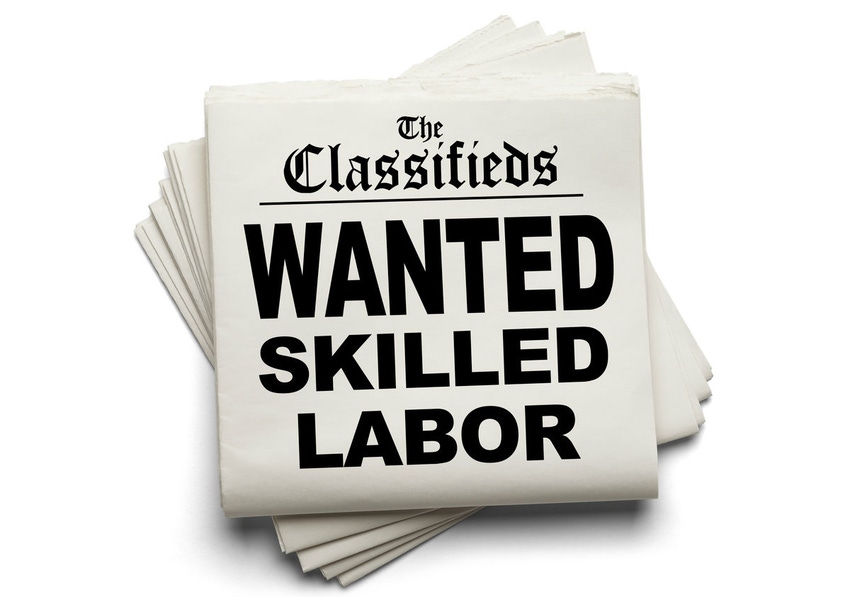Talent – or lack of it – is the single biggest accelerant of or obstacle to growth.

**Editor’s Note: Register now for Channel Partners Evolution, Sept. 25-28, in Austin, Texas.**
Talent – or lack of it – is the single biggest accelerant of or obstacle to growth.
Too often, however, you can’t find the right person with the right skill set at the right time for the right price because the talent pool is becoming alarmingly shallow. In fact, the 2016 State of the CIO survey found that nearly two-thirds of respondents view this as an “existential threat” to their businesses.

Carousel’s Tim Hebert
During the concurrent education session titled, “Beat The Skills Shortage By Thinking Differently,” at Channel Partners Evolution, Sept. 25-28 in Austin, Texas, Tim Hebert, Carousel Industries’ chief client officer, will explore ways to attract, engage and retain the talent to take your business to the next level.
In a Q&A with Channel Partners, Hebert gives a sneak peak of the information he plans to share with attendees.
Channel Partners: Has the ongoing skills shortage impacted Carousel? If so, how?
Tim Hebert: The simple answer is yes. Finding talent that possess the right combination of technical acumen, professional skills and character has been, and will continue to be, the single biggest inhibitor to our growth. Because Carousel has such a strong employer brand, getting people to respond to a job posting is not the problem; our problem is finding the right person with all the skills we need. It’s not uncommon to take three to six months or longer to fill key positions while interviewing hundreds of candidates. You have heard the old saying that “time is money.” And every day that goes by with a position that is unfilled is a loss of direct revenue and a missed opportunity for growth.
CP: What are some of the new ways of finding and attracting better talent?
TH: One of my favorite quotes comes from the 1992 movie, “Glengarry Glenn Ross”: “ABC. A, always. B, be. C, closing. Always Be Closing.” I think modern recruiting follows a similar philosophy of “Always Be Recruiting.” The days of waiting for an opening, going through the talent requisition approval process, developing a job description, creating a job posting and placing it on Monster, Indeed, LinkedIn or some other job site are long gone. Today, we need to constantly seek talent even though there’s no approved requisition.
By always recruiting, we are building a talent pipeline or a talent bench, so that when we need to hire someone, we are not starting from scratch. Depending on what your annual hiring needs are, your talent pipeline could have a few high-quality candidates to dozens. We recommend tools like LinkedIn to aid in our passive recruitment efforts and we leverage the strength of our network of employees, partners, clients and our professional network to locate passive candidates.
CP: What would be an example of thinking outside the box to attract and retain talent?
TH: This is a difficult question to answer because there are so many ways of thinking outside the box to attract and retain talent. So, let me narrow this down to two thoughts: Make it compelling and give it meaning.
When recruiting for key positions at Carousel, we focus on making the position as compelling as possible. I think we all would agree that …
… most job postings these days, especially in the tech world, sound pretty boring. Many potential candidates might not respond to this kind of posting, but they might be right candidates for your organization. We use compelling marketing statements for key positions instead of the traditionally boring job postings. A compelling market statement might look something like: Are you the kind of person that can fix anything with a piece of gum and a paper clip? Well, we are looking for you — that special senior network engineer who is resourceful enough to solve any network issue with limited time and nothing more than a screwdriver. If you are MacGyver, you must love being challenged. You must love solving the most complex problems that everyone else has given up on. You must work well under pressure and do so without breaking a sweat.
Retaining key resources within your company is essential to your long-term success and I believe that culture has the single biggest impact on employee retention. When building a healthy and vibrant culture, we must instill a sense of purpose and meaning into the work we do — we must give it meaning. When you give your employees purpose it becomes their brand, what they are driven to achieve, the magic that makes them tick. It is no longer what they do, it’s how they do their job and why — the strengths and passions they bring to the table. When you give employees purpose, they are less likely to look for new opportunities.
CP: Is retaining the talent you already have just as important and as big of a challenge as attracting new talent? If so, what are some of the most effective ways to retain talent?
TH: I think retaining high-quality talent is more important and more challenging than attracting new talent. Of course, competitive wages and benefits are a table-stakes requirement to retain talent. But beyond compensation, cultivating a culture is a key ingredient in a long-term retention strategy. Employees are more likely to stay longer with organizations that have a strong, healthy, vibrant culture. Second, there must be a cultural alignment or fit between the employee and the company. So let’s hope you hired the right employee for your culture. And last, make investments in your employees. Invest in their careers, education and advancement. Employees stay with companies that invest in their personal growth.
CP: What do you hope those who attend your presentation learn and take with them?
TH: Talent and skill shortages will be the biggest challenges facing most organizations during the next decade. Along with this shortage, the cost of talent is expected to rise at an alarming rate. I am hoping that Evolution conference attendees will gain a new perspective and insight on how to deal with the talent wars we are facing. Second, they will learn several “outside the box” actionable tactics for immediate implementation. And last, we will explore long–term strategies that will take today’s challenges and convert them into tomorrow’s competitive advantages.
Read more about:
AgentsAbout the Author(s)
You May Also Like


